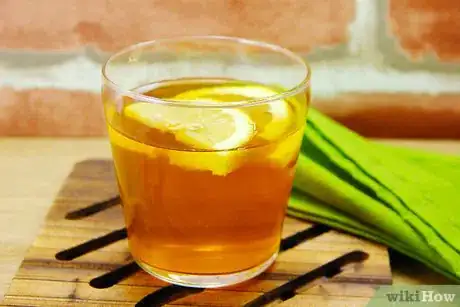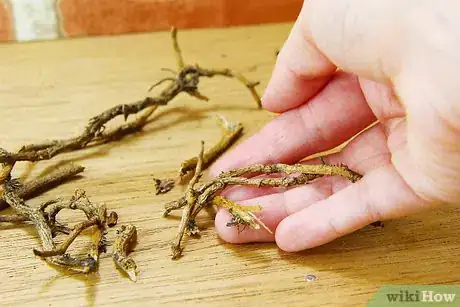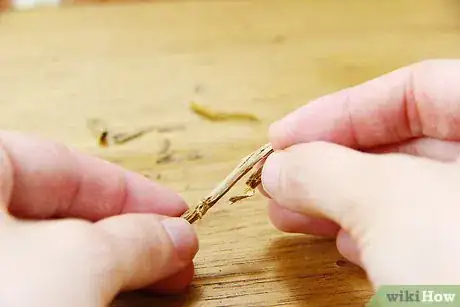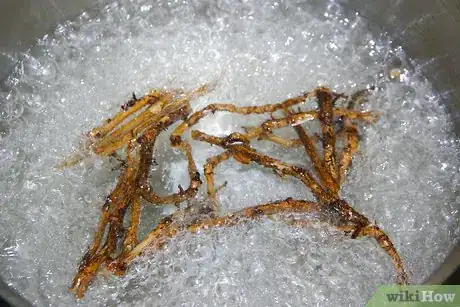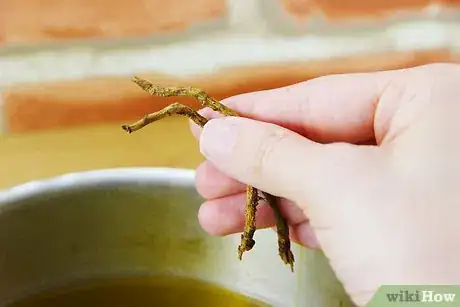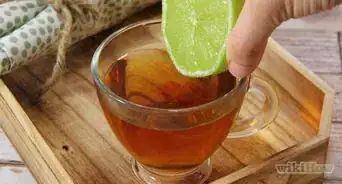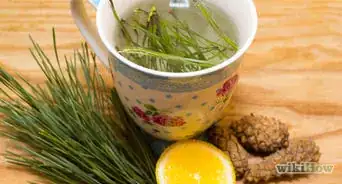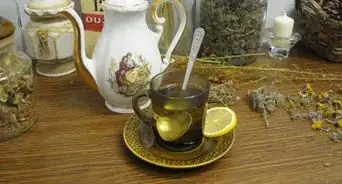wikiHow is a “wiki,” similar to Wikipedia, which means that many of our articles are co-written by multiple authors. To create this article, 24 people, some anonymous, worked to edit and improve it over time.
wikiHow marks an article as reader-approved once it receives enough positive feedback. In this case, 95% of readers who voted found the article helpful, earning it our reader-approved status.
This article has been viewed 213,737 times.
Learn more...
Root beer gets its name from the oil extracted from the root of the sassafras tree. If you live in a region where this tree grows in the wild, you may be able to make your own drink from this same plant. Here is how to make sassafras tea.
Ingredients
- Sassafras roots, dried
- Water
- Sugar
Steps
-
1It has been estimated that one cup of strong sassafras tea could contain as much as 200 mg [milligrams] of safrole, more than four times the minimal amount believed hazardous to humans if consumed on a regular basis".[1] Aromatic oil derived from the sassafras root bark was formerly much utilized in flavoring confections, soft drinks, and pharmaceutical products.[2] Such use was banned by the U.S. Food and Drug Administration in 1960 after safrole was found to be hepatocarcinogenic (liver-cancer-causing) in the rat.[3]
-
2Find a sassafras tree. It is found in cool damp shady areas in the southern United States. It is a thin tree, usually with few limbs, and leaves that have three unequal lobes opposite the leaf stem. When the sap is down (the tree is dormant for winter), the bark and roots have a distinctive root beer odor when scraped.[4]Advertisement
-
3Get permission from the landowner before going onto private property to search for sassafras trees. Tress-passing and removing trees, or anything else from private property is a criminal offense.
-
4Dig or pull the tree up with its roots, remove them, and wash and cut them into 2 to 3 inch (5.1 to 7.6 cm) pieces.
-
5Allow them dry for a week or so. Keep them in a cool, dry place during the drying time to prevent them from rotting.
-
6Strip the bark (or skin) from the roots after they have dried, cutting it slightly into the woody part of the root. The bark is where the tree stores its sap during the dormant, winter months. Store these strips of root skin in airtight containers like zipper freezer bags until ready to use.
-
7Boil about 2 to 4 ounces of this bark in a quart of water for twenty minutes or so and then allow it to steep until it cools.[5]
-
8Add the same amount of sugar you would for regular Iced Tea adjusting it to your personal tastes.[6]
-
9Add more water to make it a gallon and enjoy.
-
10To make your tea stronger or sweeter add more or less roots / sugar.
Community Q&A
-
QuestionCan I use the sticks, twigs or leaves to make sassafras tea?
 Community AnswerNot the leaves, but in high summer when the sap is running, small twigs can be used. It's stronger, though, and you need about three times the water as shown above.
Community AnswerNot the leaves, but in high summer when the sap is running, small twigs can be used. It's stronger, though, and you need about three times the water as shown above. -
QuestionWhere can I find sassafras tea in the store?
 Community AnswerOn the tea aisle. It's usually pre-made and bottled.
Community AnswerOn the tea aisle. It's usually pre-made and bottled. -
QuestionWhat is the best time of year to dig up roots?
 Community AnswerThe late fall or early winter, after the leaves have changed color, but before the stored sugar is used by the tree.
Community AnswerThe late fall or early winter, after the leaves have changed color, but before the stored sugar is used by the tree.
Warnings
- Sassafras is a blood-thinner (AKA: A Detoxification Agent for the Body) Use in small amounts. Make your blood too thin and it will come through the skin. Ask an old farmer and he'll tell you how much.⧼thumbs_response⧽
- Sassafras contains agents that are known to cause liver damage and cancer according to FDA of the USA.⧼thumbs_response⧽
- Do not eat the small, white berries of the sassafras tree. Use any herbal ingredients with caution, as their toxicity may be unknown.⧼thumbs_response⧽
- Never remove any plant growing on state or national parks, or any other property without permission.⧼thumbs_response⧽
Things You'll Need
- Shovel for digging larger sassafras trees
- Sharp knife for skinning the roots
- Containers for various steps
References
- ↑ https://www.webmd.com/vitamins/ai/ingredientmono-674/sassafras
- ↑ https://www.ncbi.nlm.nih.gov/pmc/articles/PMC2504026/
- ↑ https://ntp.niehs.nih.gov/ntp/roc/content/profiles/safrole.pdf
- ↑ https://sciencing.com/sassafras-trees-7787850.html
- ↑ https://www.epicurious.com/recipes/food/views/sassafras-tea-381372
- ↑ https://www.uaex.edu/yard-garden/resource-library/plant-week/sassafras.aspx
